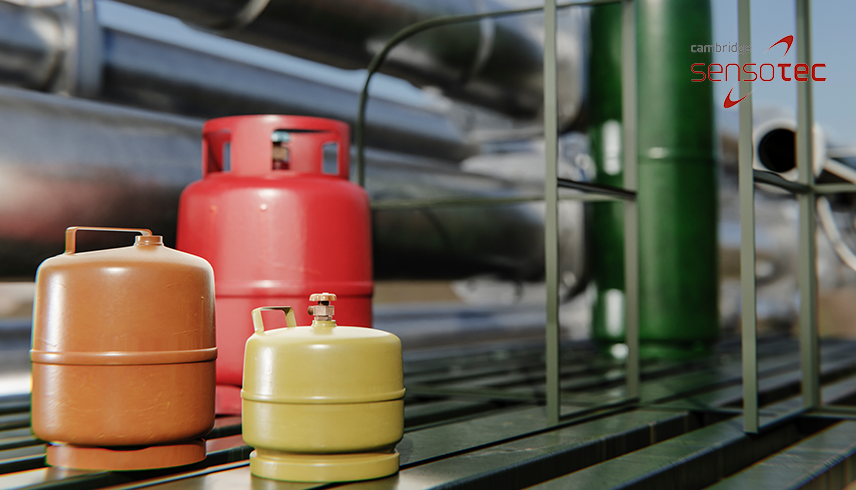

Precision in Hydrogen Gas Analysis: Choosing the Right Gas Analyzer
Introduction
In the rapidly expanding world of alternative energy and its technologies, hydrogen stands out as a promising and sustainable solution. With potential applications ranging from fuel cells to industrial processes, the accurate analysis of hydrogen gas is paramount. The quality and precision of measurements hinge significantly on the gas analyzer’s capabilities, so selecting the right tool is crucial.
The Importance of Precision in Hydrogen Gas Analysis
- Safety Concerns:
Hydrogen is highly flammable, and even small concentrations in a mix with air can become explosive. Accurate detection and measurement are crucial for safety, ensuring environments remain within non-combustible limits. - Fuel Cell Efficiency:
For hydrogen fuel cells, the purity of the hydrogen used can drastically affect performance. Impurities can reduce efficiency and even damage the fuel cell over time. A precise gas analyzer ensures the hydrogen quality meets the strict requirements. - Economic Considerations:
Inaccurate readings can lead to wastage, which in turn, translates to financial losses. Whether it’s from the unnecessary use of purification mechanisms or the wastage of hydrogen itself, precision matters from an economic standpoint. - Environmental Impact:
Hydrogen production can come from various sources, both green and non-green. Analyzing the purity and constituents of hydrogen can determine its environmental footprint, aiding in sourcing decisions and sustainability goals. - Regulatory Compliance:
Many industries have strict regulatory standards concerning gas emissions and quality. Precision in gas analysis ensures that hydrogen-related operations remain compliant, avoiding potential fines and sanctions.
Selecting the Right Gas Analyzer: Key Considerations
- Range of Detection:
The ideal gas analyzer should offer a wide detection range, capable of identifying both high and trace concentrations of impurities within the hydrogen gas. This ensures that the analyzer can be used for various applications, from safety monitoring to quality assurance. - Speed of Response:
Given that hydrogen is highly reactive and can pose safety risks, a quick response time is paramount. Gas analyzers with fast sensors can provide almost instantaneous readings, ensuring timely interventions when necessary. - Accuracy and Precision:
While these terms are often used interchangeably, they refer to different aspects of measurement quality. Accuracy is about how close a reading is to the true value, while precision concerns the consistency of repeated measurements. For critical applications, an analyzer must excel in both. - Calibration and Maintenance:
The frequency with which an analyzer needs recalibration and the ease of the process can impact long-term operational costs and accuracy. Opt for devices known for stable performances and infrequent calibration needs. - Durability and Environmental Tolerance:
Hydrogen gas analysis might be required in challenging environments, whether it’s extreme temperatures, high humidity, or the presence of other corrosive gases. The chosen gas analyzer should be robust enough to handle such conditions without compromising its performance. - Ease of Integration:
In many industrial setups, gas analyzers need to integrate with existing systems for data collection, analysis, and reporting. Devices with flexible connectivity options, including digital outputs and compatibility with industry-standard protocols, can be invaluable. - User-Friendliness:
While technical specifications are crucial, the user interface shouldn’t be overlooked. An intuitive design, clear display, and straightforward controls make it easier for operators to use the device efficiently and reduce the risk of user-induced errors.
Advancements in Gas Analyzer Technology: Enhancing Precision and Reliability
- Miniaturised Sensors:
Recent advancements have led to the development of smaller, yet equally efficient sensors. These miniaturised sensors allow for portable gas analyzers, ideal for on-the-go measurements and field operations, without compromising accuracy. - Internet of Things (IoT) Integration:
Modern gas analyzers often come with IoT capabilities, allowing them to connect to networks and share data in real-time. This is invaluable for remote monitoring, predictive maintenance, and immediate alerts in case of anomalies. - Advanced Calibration Techniques:
With the advent of sophisticated calibration gases and techniques, calibrating gas analyzers has become more accurate. Some modern devices also come with self-calibration features, significantly reducing maintenance time. - Enhanced Data Processing and Storage:
Today’s gas analyzers can store a vast amount of data, making trend analysis and historical comparisons possible. Coupled with powerful data processing capabilities, this allows for in-depth analysis and insights. - Multi-Gas Detection:
While the focus here is on hydrogen, many applications require simultaneous analysis of multiple gases. Dual or multi-gas analyzers, equipped with multiple sensors, have become more prevalent and offer comprehensive analysis in a single device. - Improved Power Efficiency:
Longer battery life and energy-efficient operations mean that gas analyzers can function longer in the field, reducing the frequency of recharges and ensuring uninterrupted measurements. - Safety Enhancements:
Considering the flammability of hydrogen, modern gas analyzers come with safety features like explosion-proof enclosures, ensuring that they can operate safely even in potentially hazardous environments.
Applications of Precise Hydrogen Gas Analysis
- Fuel Cells and Renewable Energy:
Hydrogen fuel cells represent a significant leap towards clean energy. For these cells to operate at peak efficiency, the purity of hydrogen must be maintained. A gas analyzer helps monitor and ensure this purity, preventing contaminants that might degrade fuel cell performance. - Petrochemical and Refineries:
In oil refineries, hydrogen is often used in hydrocracking processes. An accurate gas analysis ensures optimal process conditions, enhances yield, and safeguards equipment from potential damage due to impurities. - Steel Manufacturing:
Hydrogen can reduce iron ore to produce steel. Monitoring hydrogen levels during this process ensures consistent steel quality and can help in identifying potential issues in the reduction process. - Semiconductor Manufacturing:
In electronics manufacturing, especially semiconductors, precise gas composition is vital. Hydrogen plays a role in various processes, and its accurate analysis ensures the quality of the final products. - Space and Aviation:
Hydrogen is often used as a fuel in rocket propulsion. The purity and consistency of this hydrogen are critical. Gas analyzers are employed to ensure that the fuel meets stringent quality standards. - Heat Treatment Processes:
In certain heat treatment applications, hydrogen serves as a reducing atmosphere. Monitoring its concentration and impurities ensures the desired properties of the treated materials. - Food and Pharmaceutical Industries:
Hydrogen gas analysis is essential in hydrogenation processes used in food and pharmaceutical production. Ensuring the right concentration and purity can affect the quality and safety of the final product.
To conclude, precise hydrogen gas analysis plays a pivotal role across various industries. Selecting the right gas analyzer is not just about meeting regulatory requirements—it’s about optimising processes, ensuring safety, and delivering quality.
Conclusion: The Role of Cambridge Sensotec in Precise Hydrogen Gas Analysis
In hydrogen applications’ vast and diverse landscape, we cannot overstate the importance of accurate and precise gas analysis.It’s a subtle art that balances safety, efficiency, and quality. While understanding the significance of accurate hydrogen gas analysis is vital, selecting the right tool to facilitate this is equally, if not more, crucial.
Cambridge Sensotec, with its years of expertise in gas analysis, understands the intricacies of the industry. Our gas analyzers are not just instruments; they are crafted solutions tailored to meet the demands of various sectors. By combining cutting-edge technology with robust construction, we ensure that our products stand up to real-world challenges.
Whether you are venturing into the renewable energy sector, refining petrochemicals, or engaged in high-tech manufacturing, having the right gas analyzer by your side can make a world of difference.
Don’t compromise on precision. Experience the best in gas analysis with Cambridge Sensotec. Explore our range of gas analyzers tailored for hydrogen analysis and discover the difference that true precision can make. Contact us today and elevate your hydrogen-related operations to the pinnacle of efficiency and safety.


